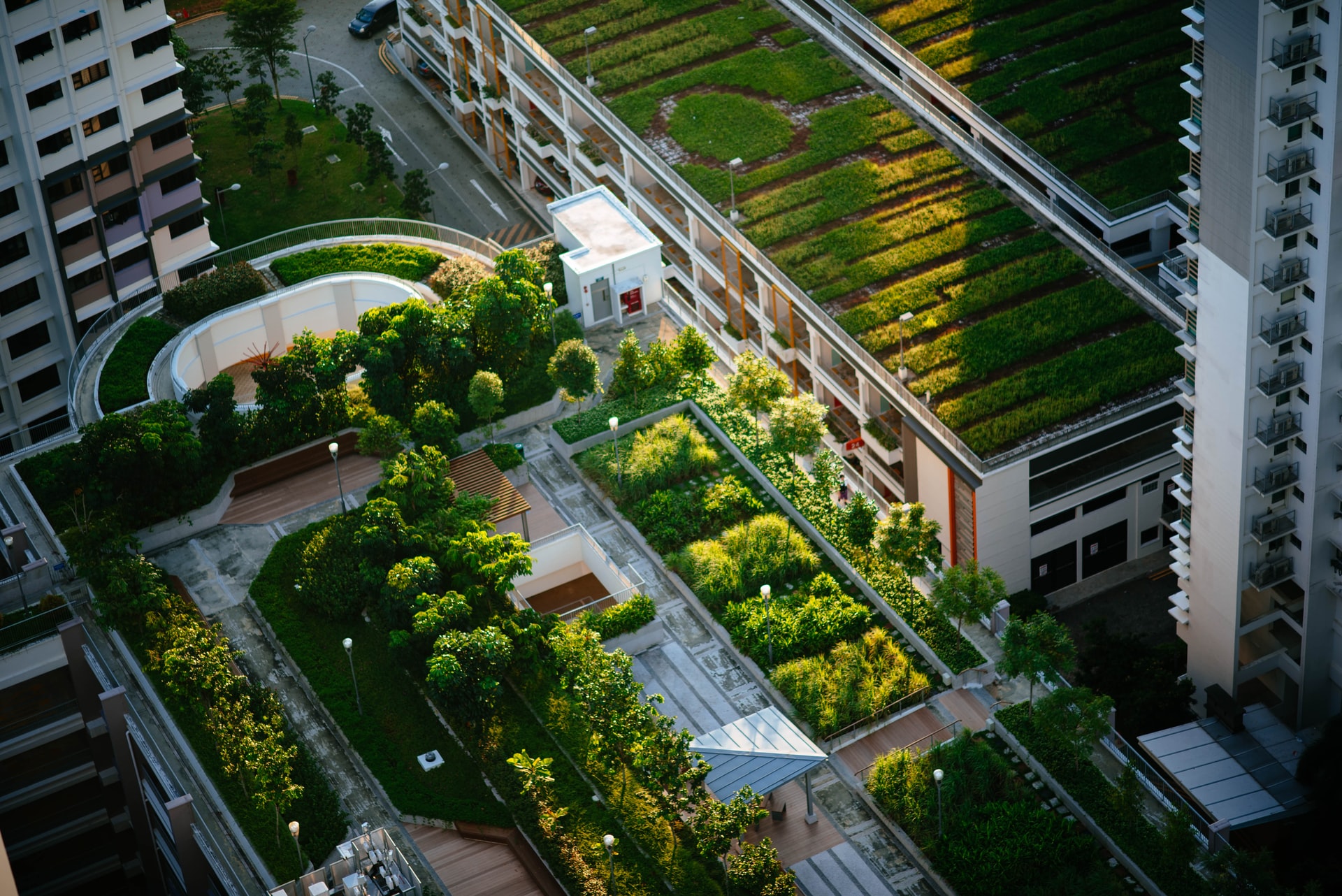Nature-based infrastructure (NBI) can help us deal with climate change and build a better future for communities worldwide. We need to rapidly scale up our efforts to better protect, manage, and restore the ecosystems around us.
The Growing Momentum for Nature-Based Solutions
Policy-makers increasingly lean on nature-based solutions (NBS) to tackle societal challenges like climate change, food security, and biodiversity loss. For example, President Biden’s American Jobs Plan aims to support communities and the environment by protecting and restoring nature.
The European Commission is promoting NBS in the European Green Deal and works hard to build the knowledge base on NBS. NBS are also part of climate adaptation plans and the ongoing negotiations on the Common Agriculture Policy (CAP). NBS is defined as actions to protect, sustainably manage, and restore natural or modified ecosystems. They address societal challenges while improving human well-being and supporting biodiversity.
NBS is an umbrella concept that covers a broad range of measures like protecting forests, improving agricultural practices, and bringing more green spaces into cities. Nature-based infrastructure (NBI) is a subset of NBS. The term describes ecosystems that deliver infrastructure services (like water filtration) as well as additional benefits (such as improved human health).

Nature-Based Solutions for Addressing Climate Change
NBS can help keep global warming in check by capturing carbon and avoiding emissions. For example, a forest binds carbon when growing, and protecting moors avoids the release of greenhouse gases into the atmosphere.
Researchers from Oxford University’s Nature-Based Solutions Initiative have demonstrated that the worldwide implementation of NBS could reduce the peak temperature reached this century. Furthermore, NBS could significantly cool down the planet after this peak. But it remains paramount to cut greenhouse gas emissions of the global economy.
NBS also support climate adaptation. For example, an IISD assessment has demonstrated that agroforestry can help a municipality in Belgium adapt to extreme rainfall and rising temperatures. Such a scheme of planting trees and hedges on farmland provides benefits like water filtration, reduced heat stress on cows, and higher agricultural yields. For investments of about EUR 600,000, the agroforestry project can deliver economic, ecological, and social benefits of EUR 3.9 million over 20 years.
Related Articles: How Nature-Based Solutions Can Mitigate Climate Change | How Nature Can Lead The Way in Adapting to Climate Change
It’s About More Than Climate
NBS have a role to play in climate mitigation and adaptation, but we must not forget that their virtue lies in the multitude of benefits they can provide to people and our planet. NBS filter the water we drink, give us outdoor spaces to enjoy, and offer a habitat for threatened plants and animals. They also sustain the livelihoods of communities.
The mangrove ecosystem of the Saloum Delta in Senegal, for example, supports more than 100,000 people. A recent assessment by IISD shows that the delta delivers ecosystem services worth CFA 964 billion (about EUR 1.47 billion) over 10 years.
For instance, the wetland filters water and provides locals with edible plants. It also supports the labour income of CFA 1,973 billion (about EUR 3 billion) in sectors like fisheries, agriculture, and tourism.
Valuing Nature as Infrastructure
Ecosystems like the Saloum Delta deliver infrastructure services and a range of co-benefits. Just like built infrastructure, they form the basis for economies around the world. Researchers and policy-makers therefore increasingly use the term nature-based infrastructure (NBI) to describe such nature-based solutions.
We need to get better at integrating the multitude of benefits of NBI into infrastructure investment decisions.
Integrated assessments such as IISD’s SAVi valuation provide evidence on the costs, revenues, and co-benefits of NBI projects. If we want to scale up NBI, building this track record is key.
For instance, our assessment for the city of Johannesburg showed that nature-based stormwater infrastructure provides higher returns on investment than purely grey infrastructure. The NBI is not only cheaper to build, but it also protects people from floods, creates jobs, and improves the water supply.
Communities around the world are discovering that NBI is cost-effective solutions to their challenges. Writing in The Hill, Tim Male and Christy Plumer present fascinating examples of such projects in the United States. They showcase how investing in nature as infrastructure has much to offer to Americans and that momentum for NBI is growing. And how much we need that momentum!

Time to Embrace the Potential of Nature-Based Infrastructure
In their research on the cooling effect of NBS, the Oxford University researchers assume that we drastically ramp up NBS by 2025. This means we need to rapidly get on track and scale-up NBS to take full advantage of its climate potential. In addition, we need to make sure that the NBI deliver the additional benefits they promise.
Scaling up NBS is not only urgent—it also requires massive investments.
According to the new State of Finance for Nature report, the world needs to triple the annual investment in NBS by 2030. To successfully tackle climate change, biodiversity loss and land degradation, public and private actors need to spend a total of USD 8.1 trillion on NBS by 2050.
Governments are spending unprecedented amounts to support the economic recovery from the pandemic. Investments in NBI can help to build back better by creating jobs, addressing climate change, and improving the well-being of people and ecosystems. Decision-makers in the United States and around the world, therefore, need to include NBI in this wave of public spending.
To help them make the right decisions, we must showcase the performance, predictability, and financial viability of NBI. For this reason, IISD, together with United Nations Industrial Development Organization (UNIDO), the MAVA Foundation, and the Global Environment Facility (GEF) Secretariat will be launching the NBI Global Resource Centre.
The Centre will host the results of more than 40 NBI valuations and create an online database on the performance of NBI. It will also provide capacity building for policy-makers and investors to scale up the use of NBI for climate adaptation and additional benefits. Let us build on what we have learned so far about NBI, and learn from the projects we can create—now.
— —
About the author: Ronja Bechauf is a consultant for the International Institute for Sustainable Development (IISD).
Editor’s Note: The opinions expressed here by Impakter.com columnists are their own, not those of Impakter.com.— In the Featured Photo: Aerial view of green spaces growing beside buildings in the centre of a city. Featured Photo Credit: CHUTTERSNAP / Unsplash











